Navigating the terrain of parenthood comes with its choosing the best baby water. One of them where these complexities often manifest themselves. This choice may seem straightforward. But the implications it has on your baby’s health make it an important decision that warrants careful thought and understanding. This task is vital because the water used in infant formula directly impacts upon your baby’s nutrition and overall well-being.
In this blog, we will discuss why choosing the right water for your baby’s formula is crucial. We will explore the qualities that water must possess for it to be considered safe for infant formula. Moreover, this blog will also unravel the various factors you need to while making this essential choice. These include the quality, safety, convenience, and cost associated with the different water options.
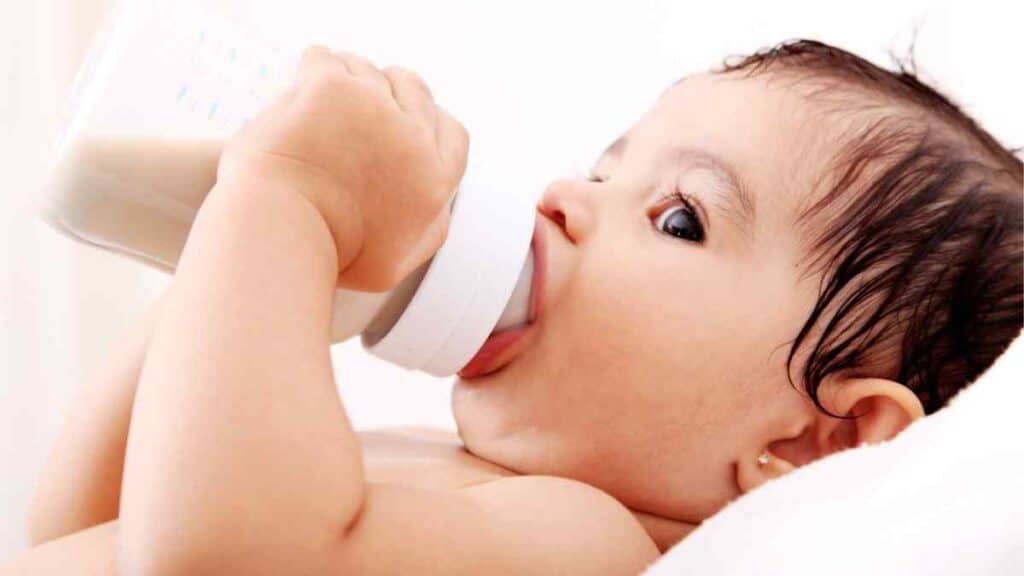
Choose The Best Baby Water
Choosing the right kind of water when making infant formula isn’t as easy as it might seem. Factors need to be taken into account and the necessity the best nutrition cannot be overemphasized. Let’s look more deeply into why this matter is so important.
Quality: The Backbone of Your Formula
Quality in terms of water refers to its purity level. In how free it is from contaminants, toxins and potentially harmful bacteria. The quality of water used in making baby formula could greatly affect your baby’s health and wellbeing. Your child’s immune system is in the formative stages during infancy. It provides them with top-quality and clean water is essential.
Remember, high-quality water does not only ensure the nutritional value of your formula. But it’s also your primary weapon for disease control and prevention. Using poor-quality or polluted water could lead to diseases such as bacterial infections, diarrhea or skin rashes. For babies with weakened immune systems from pre-existing illnesses or malnutrition, the risks are even higher. To sum up, the better the quality of water, the less chance you are taking with your baby’s health.
Safety and Choose the Best Baby Water
Safety standards for water quality go beyond just the visible cleanliness or taste. Specifically, the water you use to prepare your infant’s formula should be free from all forms of contaminants. These could include lead, E. coli, Salmonella, or other harmful elements. Contaminated water could lead to serious health issues like food poisoning, electrolyte imbalance, or dehydration, amongst others.
Therefore, water safety becomes paramount, especially where clean drinking water isn’t accessible to everyone. Opting for bottled water can be a handy solution in such situations, but boiling the tap water can also kill many waterborne bacteria and other microorganisms.
Convenience Factor for the Best Baby Water
Let’s face it, parenting can be overwhelming, and every shortcut or convenience is a godsend. Using distilled or purified bottled water for preparing baby formula can help shave off a few precious minutes from your rigorous routine. You don’t need to filter or boil this water, and it’s ready to use right from the bottle.
However, be sure to check the source of the bottled water, and if they have already added minerals or substances that could potentially be harmful to infants.
Keep an Eye on Cost
While opting for distilled or purified water might sound like the perfect solution, it can be a bit taxing on your wallet, especially if you’re buying by the case for everyday use. This is where tap water comes in as a more cost-effective solution. You can always access tap water and make it safe for baby formula preparation by boiling it correctly.
That being said, the safety of your tap water can vary depending on where you live. You might want to get your tap water tested for contaminants or seek advice from local health authorities.
So, when weighing the different facets of choosing the kind of water for your baby’s formula, quality, safety, convenience, and cost stand as crucial influencers. Always bear in mind that providing top-grade sustenance for your tiny one is the end goal. Tailor your choice keeping in mind the availability and your resources. Every decision should have your baby’s well-being at its core, guiding you towards the best choice possible for their health and happiness.
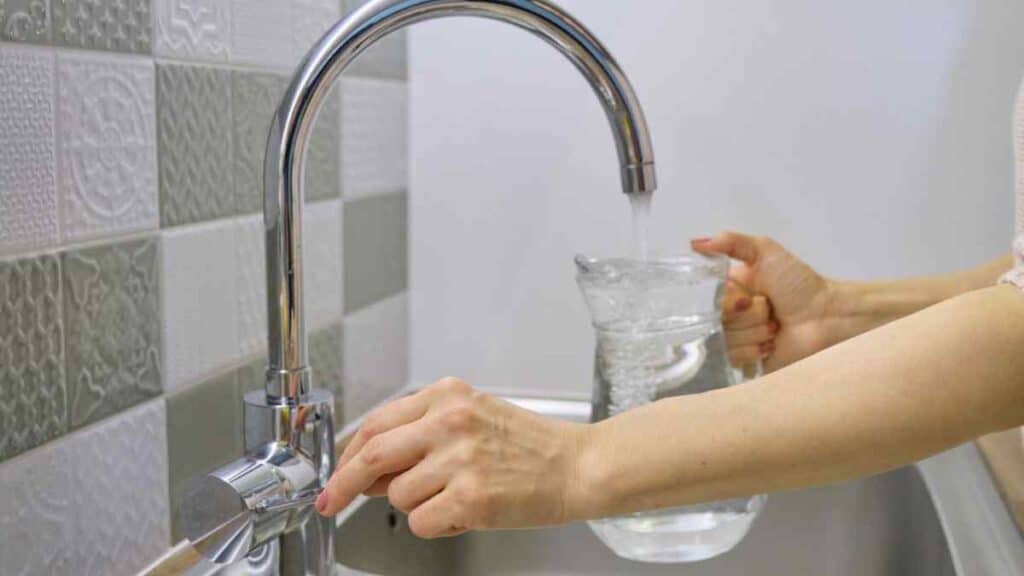
Fluoridated Tap Water Safe and the Best Baby Water?
People have been using fluoridated tap water on a large scale. They use it to prepare baby formula and is generally considered safe. However, the decision to use it depends heavily on the safety and quality of the tap water in your area and its fluoridation level. Subject to your tap water being deemed safe from harmful contaminants such as lead and bacteria, you may opt for its use in preparing your baby’s formula.
Fluoridated tap water comes with its own set of benefits and potential risks. Understanding these thoroughly allows you to make an informed decision tailored for your situation.
Advantages of Using Fluoridated Tap Water
Fluoride tap water has been treated with a controlled addition of fluoride. A practice adopted by many municipalities to reduce tooth decay in the population. Fluoridated tap water not only supports oral health but also provides several other benefits when used in infant formula preparation. These advantages make it a viable choice for many parents. Here are the standout advantages of using fluoridated tap water:
Easy Availability and Cost Efficiency
The foremost advantage is that tap water is readily accessible in your home and across various other locations. Making it a convenient choice. The associated costs are comparatively low. For families on a budget, this could be a major point in favor, as it eliminates the need for regular purchases of bottled water.
Regulated Safety
Tap water in developed countries goes through substantial purification processes before making it into domestic lines. Local public health departments treat tap water to remove most harmful substances, including dangerous bacteria and viruses.
Potential Risks With Fluoridated Tap Water
While benefits do exist, fluoridated tap water is not without potential risks. Consumers should be aware of these before deciding to use it in infant formula.
Possible Contaminants
Despite rigorous purification processes. Fluoridated tap water can sometimes still contain certain chemicals and toxins, which might be harmful for an infant’s health. For instance, if older lead pipes route the water supply, they could potentially contaminate the water with traces of lead. Infrequent cases of waterborne germs may also occur.
Variances in Quality and Regulation
The quality of tap water may greatly vary from one region to another. This means that what one area deems safe might be considered hazardous in another. Local health departments have established standards and cutoffs for determining the safe drinking water levels, but these might still not be optimal for infants’ sensitive systems.
Note that the American Dental Association recommends using low-fluoride bottled water to prepare formula if your tap water contains high levels of fluoride (over 0.7ppm) to reduce your infant’s potential exposure to fluoride.
Knowing the pros and cons gives you a framework to decide whether fluoridated tap water is a good fit for your family’s needs. It’s always a good idea to have a conversation with your pediatrician before making this decision. After all, the well-being of your baby always comes first.
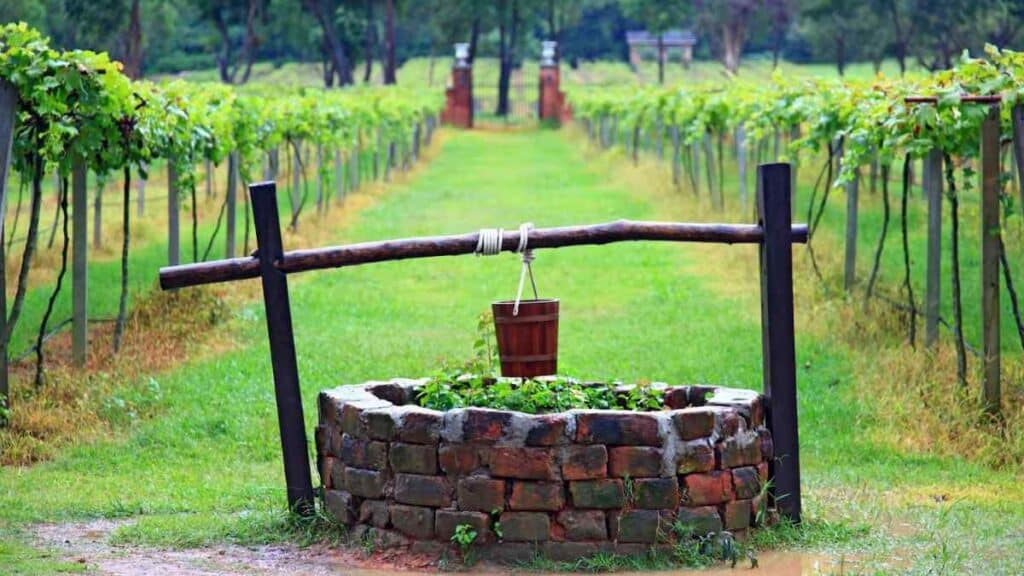
Well Water the Best Baby Water?
You can indeed use well water to prepare baby formula, but you must take a few necessary precautions. Since well water accumulates as groundwater, various sources can contaminate it. Before using well water for your baby’s formula, you must ensure it is safe for consumption and free of harmful contaminants that could potentially affect your baby’s health. Before using well water for your baby’s formula, it’s crucial to ensure it is safe for consumption and free of harmful contaminants that can potentially affect your baby’s health.
In particular, common well water contaminants such as nitrates and coliform bacteria can pose a serious threat to infants. Infants who consume high levels of nitrates could develop a rare but dangerous condition known as methemoglobinemia, also called ‘blue baby syndrome,’ resulting in an inability for the blood to carry enough oxygen. Coliform bacteria, on the other hand, could lead to various illnesses such as diarrhea and infections.
Recommendations
The Centers for Disease Control and Prevention (CDC) recommends testing well water. At least twice a year for coliform bacteria and once a year for nitrates. This routine testing can help keep track of your well water’s safety and notify you of any potential threats. However, if these contaminants are found at unsafe levels in your well water, it should not be utilized for your baby’s formula.
Should your well water be established as safe for use, boiling it prior to mixing the formula is a recommended practice. Boiling helps eliminate any potential bacteria or other microorganisms that might have slipped through your testing. Always ensure the water is cooled down to a safe temperature before adding the formula to prevent any burns to the baby’s mouth.
In all, while well water can be used in preparing baby formula, it requires thorough testing and careful handling to ensure it’s a safe and beneficial choice for your little one. If you’re uncertain about your well water’s safety, always consult a healthcare professional or local health department.
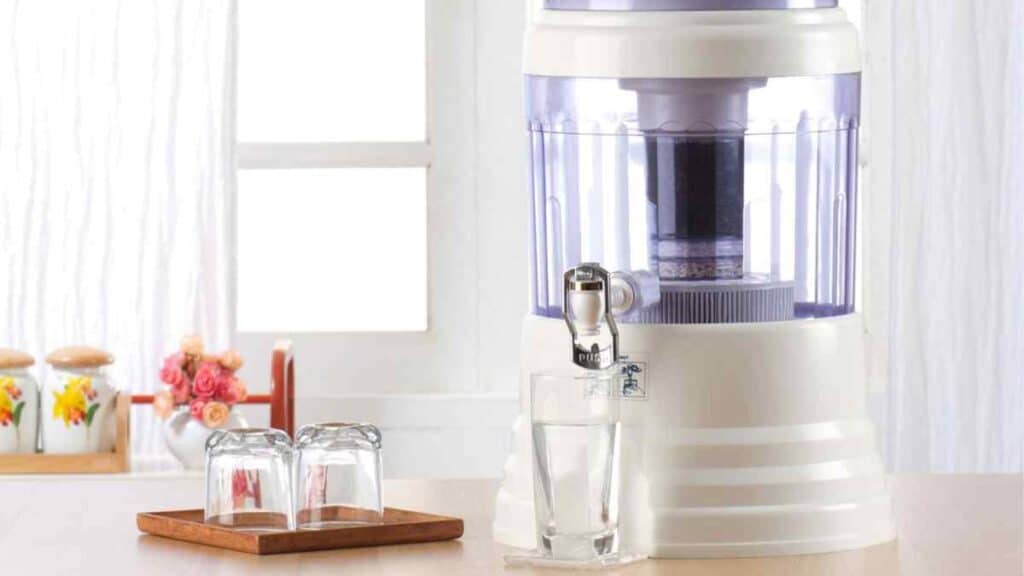
Filtered Water is the Best Baby Water?
Filtered water is considered safe for making baby formula as long as you ensure that the filter being used is suitable for the task and has been tested for its effectiveness in removing harmful contaminants. It is essential to follow the manufacturer’s instructions for using the filter and maintaining it, as each filter might have a specific usage and maintenance guidance.
Even when using filtered water, it is still recommended to boil the water before preparing the baby formula. Boiling is a reliable method to eliminate any residual microorganisms or potential contaminants that may have escaped the filtration process. These include harmful bacteria or parasites that could potentially cause illnesses in infants, such as gastrointestinal distress or foodborne diseases.
The practice of boiling filtered water is advised even in areas where the tap water is generally considered safe. Ensure that after boiling, you allow the water to cool down to a safe, lukewarm temperature before mixing it with the formula. This further step helps make sure that the water is safe and ready for your baby to ingest.
As a final point, while filtered water is generally safe for making baby formula, proper usage and caution are key. Ensuring that the filter used is effective, following the manufacturer’s instructions, and boiling the water after filtration are steps that contribute to making the water safe for your baby. Should there be any uncertainties or concerns, it is always recommended to consult with your pediatrician or a healthcare professional for comprehensive advice.
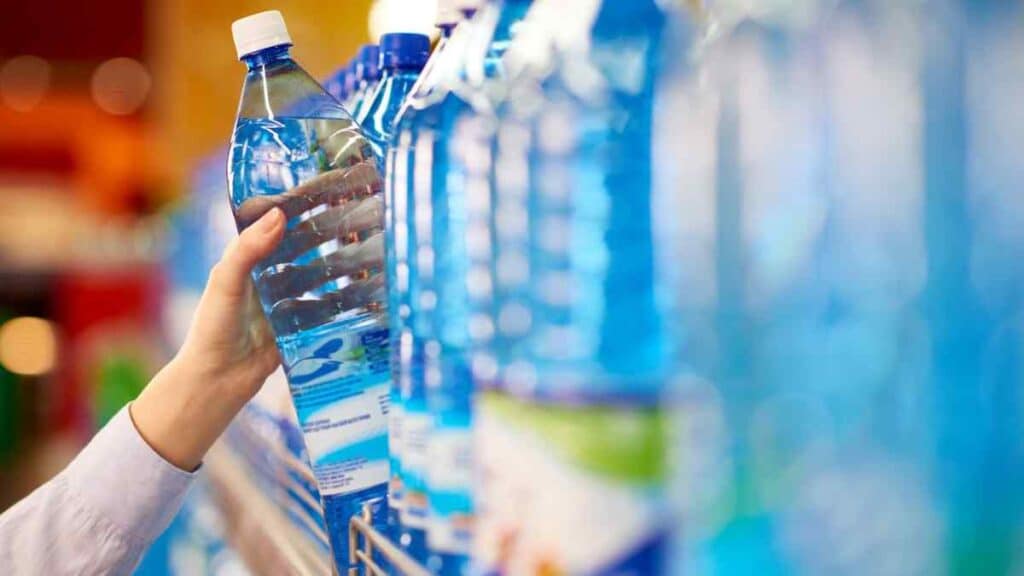
Bottled Water To Make Powdered Formula?
Yes, bottled water can be used to prepare powdered baby formula, but it is important to exercise some caution. While bottled water is often free from contaminants like lead and certain chemicals that can occur in tap water, it’s important to note that not all bottled water is the same.
Some brands of bottled water contain additional minerals for taste or potential health benefits. For example, low fluoride bottled water is a common variation available in the market. While fluoride is beneficial for dental health in correct proportions, overconsumption can lead to dental fluorosis. Hence, if you’re uncertain about the mineral content in your bottled water or the implications for your baby’s health, it’s always advisable to consult with your baby’s pediatrician or perform extensive research online to ensure the safety and suitability of the water before making the formula.
Furthermore, it is crucial to consider the environmental and economic impact of using bottled water. Bottled water is generally more costly than tap water and implies environmental concerns tied with its production and disposal. The production of bottled water consumes substantial energy, contributing to CO2 emissions and other pollutants. In addition, discarded bottles often end up in landfills or the ocean if not properly recycled, posing a significant environmental threat.
To minimize these concerns, using appropriate quantities when preparing formula can help avoid waste and overuse of bottled water. It’s also important to consistently recycle used water bottles to help mitigate their environmental impact. Finally, when making the decision to use bottled water for your baby’s formula, it’s recommended to balance these considerations with the convenience and perceived purity that bottled water provides, ensuring the best choice for your baby’s needs.
Conclusion
In conclusion, choosing the right water for mixing infant formula is a crucial decision that cannot be neglected. With quality, safety, convenience, and cost as the primary factors to consider, parents need to weigh their options carefully. Fluoridated tap water, well water, filtered water, and bottled water each have their advantages and potential drawbacks. Understanding the specifics of these options and consulting with healthcare professionals will help parents make the most informed choice possible, ultimately contributing to the health and happiness of their babies.
Additionally, being aware of the environmental and economic impact of using bottled water is important, and taking steps to minimize waste and recycle used bottles helps mitigate these concerns. As parents, ensuring a baby’s well-being is the prime goal, and taking the time to research and comprehend the importance of choosing the appropriate water for infant formula plays an essential part in providing the best possible care and nutrition for your baby.
Did this article help you? If you have a question, just drop us a comment and we will answer it. Thank you for stopping by.



